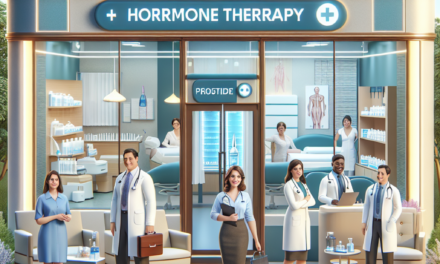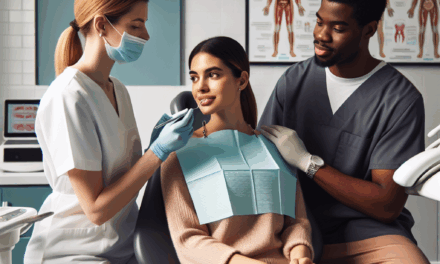Enhance Patient Data Access Using Zebra Mobile Devices
In the rapidly evolving landscape of healthcare, the need for efficient patient data access has never been more critical. With the advent of mobile technology, healthcare providers are increasingly turning to mobile devices to streamline operations, improve patient care, and enhance data accessibility. Zebra Technologies, a leader in mobile computing solutions, offers a range of devices that can significantly enhance patient data access. This article explores the various ways Zebra mobile devices can transform healthcare delivery, focusing on five key areas: improved data accessibility, enhanced patient engagement, streamlined workflows, increased data security, and real-world case studies.
Improved Data Accessibility
In a healthcare setting, timely access to patient data is crucial for effective decision-making. Zebra mobile devices, equipped with advanced technology, enable healthcare professionals to access patient information at the point of care, thereby improving the quality of care provided.
One of the primary advantages of Zebra mobile devices is their ability to integrate seamlessly with electronic health record (EHR) systems. This integration allows healthcare providers to retrieve patient data quickly, reducing the time spent searching for information. For instance, a nurse can use a Zebra tablet to pull up a patient’s medical history, lab results, and medication lists while at the bedside, ensuring that they have all the necessary information to make informed decisions.
Moreover, Zebra devices are designed for durability and ease of use in clinical environments. With features such as touchscreens, barcode scanners, and voice recognition, these devices facilitate quick data entry and retrieval. This is particularly beneficial in high-pressure situations where every second counts. For example, in emergency departments, the ability to access patient data rapidly can be the difference between life and death.
- Integration with EHR Systems: Zebra devices can connect with various EHR platforms, allowing for real-time data access.
- Durability: Built to withstand the rigors of healthcare environments, Zebra devices are resistant to spills, drops, and other hazards.
- User-Friendly Interfaces: The intuitive design of Zebra devices ensures that healthcare professionals can navigate systems quickly and efficiently.
Statistics show that healthcare organizations that implement mobile technology experience a significant reduction in the time spent on administrative tasks. According to a study by the Healthcare Information and Management Systems Society (HIMSS), organizations that adopted mobile solutions reported a 30% decrease in time spent on data entry and retrieval. This not only enhances patient care but also allows healthcare providers to focus more on direct patient interaction.
Enhanced Patient Engagement
Patient engagement is a critical component of effective healthcare delivery. Zebra mobile devices can play a pivotal role in fostering better communication between healthcare providers and patients. By providing patients with access to their health information, these devices empower them to take an active role in their care.
One of the ways Zebra devices enhance patient engagement is through mobile applications that allow patients to view their medical records, schedule appointments, and communicate with their healthcare providers. For instance, a patient can use a Zebra mobile device to check their lab results and understand their treatment options better. This transparency fosters trust and encourages patients to participate actively in their healthcare journey.
Additionally, Zebra devices can facilitate remote monitoring and telehealth services. With the rise of telemedicine, healthcare providers can use Zebra mobile devices to conduct virtual consultations, allowing patients to receive care from the comfort of their homes. This is particularly beneficial for patients with chronic conditions who may require regular check-ins but have difficulty traveling to healthcare facilities.
- Access to Health Information: Patients can view their medical records and treatment plans through mobile applications.
- Remote Monitoring: Zebra devices enable healthcare providers to monitor patients’ health metrics remotely.
- Telehealth Services: Virtual consultations can be conducted using Zebra mobile devices, improving access to care.
Research indicates that increased patient engagement leads to better health outcomes. A study published in the Journal of Medical Internet Research found that patients who actively engage with their health information are more likely to adhere to treatment plans and experience improved health outcomes. By leveraging Zebra mobile devices, healthcare providers can enhance patient engagement and ultimately improve the quality of care.
Streamlined Workflows
Efficiency in healthcare workflows is essential for delivering high-quality patient care. Zebra mobile devices can significantly streamline workflows by automating routine tasks and reducing the administrative burden on healthcare professionals.
One of the key features of Zebra devices is their ability to scan barcodes, which can be used for various purposes, including medication administration, patient identification, and inventory management. For example, a nurse can scan a patient’s wristband to verify their identity before administering medication, ensuring that the right patient receives the right treatment. This not only enhances patient safety but also reduces the time spent on manual checks.
Furthermore, Zebra mobile devices can facilitate real-time communication among healthcare teams. With built-in messaging and collaboration tools, healthcare professionals can share information quickly and efficiently, reducing delays in care. For instance, a physician can send a message to a nurse regarding a patient’s condition, allowing for prompt intervention if necessary.
- Barcode Scanning: Automates tasks such as medication administration and patient identification.
- Real-Time Communication: Enables healthcare teams to collaborate effectively and share information instantly.
- Task Automation: Reduces the administrative burden on healthcare professionals, allowing them to focus on patient care.
According to a report by the American Hospital Association, hospitals that implement mobile technology experience a 25% increase in operational efficiency. By streamlining workflows, Zebra mobile devices not only enhance productivity but also contribute to better patient outcomes by allowing healthcare providers to spend more time with patients.
Increased Data Security
In an era where data breaches are increasingly common, ensuring the security of patient information is paramount. Zebra mobile devices are equipped with advanced security features that help protect sensitive data and maintain patient confidentiality.
One of the primary security features of Zebra devices is their ability to support secure authentication methods. Healthcare providers can use biometric authentication, such as fingerprint scanning, to ensure that only authorized personnel can access patient data. This adds an extra layer of security, reducing the risk of unauthorized access to sensitive information.
Additionally, Zebra devices are designed with encryption capabilities that protect data both at rest and in transit. This means that even if a device is lost or stolen, the data stored on it remains secure. Healthcare organizations can implement remote wipe capabilities, allowing them to erase data from a device if it falls into the wrong hands.
- Biometric Authentication: Ensures that only authorized personnel can access patient data.
- Data Encryption: Protects sensitive information both at rest and in transit.
- Remote Wipe Capabilities: Allows healthcare organizations to erase data from lost or stolen devices.
A report by the Ponemon Institute found that healthcare organizations experience the highest average cost per data breach, at $7.13 million. By investing in secure mobile devices like those offered by Zebra, healthcare organizations can mitigate the risk of data breaches and protect patient information, ultimately maintaining trust and compliance with regulations such as HIPAA.
Real-World Case Studies
To illustrate the impact of Zebra mobile devices on patient data access, it is essential to examine real-world case studies that highlight their effectiveness in healthcare settings.
One notable example is the implementation of Zebra mobile devices at a large urban hospital. The hospital faced challenges with data accessibility and workflow inefficiencies, leading to delays in patient care. By integrating Zebra tablets into their operations, the hospital was able to provide nurses with real-time access to patient data at the bedside. As a result, the hospital reported a 40% reduction in medication administration errors and a 30% decrease in patient wait times.
Another case study involves a rural healthcare clinic that adopted Zebra mobile devices to enhance patient engagement. The clinic implemented a mobile application that allowed patients to access their health records and communicate with providers. This initiative led to a 50% increase in patient participation in preventive care programs, demonstrating the effectiveness of mobile technology in improving patient outcomes.
- Urban Hospital Case Study: Reduced medication errors by 40% and patient wait times by 30% through the use of Zebra tablets.
- Rural Clinic Case Study: Increased patient participation in preventive care programs by 50% with a mobile application.
- Overall Impact: These case studies highlight the transformative potential of Zebra mobile devices in enhancing patient data access and improving healthcare delivery.
These real-world examples underscore the importance of leveraging mobile technology in healthcare. By adopting Zebra mobile devices, healthcare organizations can enhance patient data access, improve workflows, and ultimately deliver better patient care.
Conclusion
In conclusion, Zebra mobile devices offer a powerful solution for enhancing patient data access in healthcare settings. By improving data accessibility, fostering patient engagement, streamlining workflows, and ensuring data security, these devices play a crucial role in transforming healthcare delivery. The real-world case studies presented demonstrate the tangible benefits of implementing Zebra mobile technology, highlighting its potential to improve patient outcomes and operational efficiency.
As healthcare continues to evolve, the integration of mobile technology will be essential for meeting the demands of modern patient care. By investing in Zebra mobile devices, healthcare organizations can position themselves at the forefront of innovation, ultimately enhancing the quality of care provided to patients.





